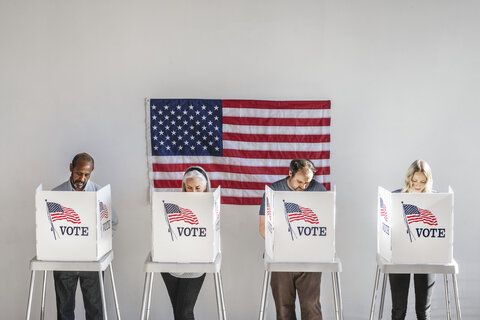Walter Olson
Number nine in our series of occasional roundups on election law and policy:
- “No voting systems are commercially available that meet the standards the president put forward in his executive order.” [Election Law Blog quoting Patrick Marley and Yvonne Wingett Sanchez, Washington Post] Bob Bauer is concerned that this part of the order is intended not only to keep earlier claims alive about “rigged or faulty” voting machines but also provide Trump “with a new argument for seizing these machines in 2026.” [Executive Functions]
- Cato welcomes as an adjunct scholar Stephen Richer, who became a nationally recognized expert on elections as elected Recorder of Maricopa County, Arizona (Phoenix). He contributed a post in this space last week on a federal district judge’s ruling against key provisions of President Trump’s executive order on election administration.
- Sharp turnabout: new Department of Justice leadership has reportedly “removed all of the senior civil servants working as managers in the department’s voting section and directed attorneys to dismiss all active cases.” [Sam Levine, The Guardian]
- “Nothing is more infuriating than changing the election rules after the outcome of the election, conducted under the existing rules, is known,” Richard Posner has written. Is that happening in the North Carolina Supreme Court dispute? [Richard Pildes, Justin Levitt, Ben Ginsberg/Carolina Journal, Nick Corasaniti and Eduardo Medina, New York Times]
- Those with misgivings about proportional representation as an electoral reform, myself included, have often wondered whether it would tend to erode the constituent and casework services that legislators provide. Lee Drutman offers a response on his blog.
- Rumors of corruption have long surrounded the world of NYC election administration, including pay-to-play schemes for jobs that let election workers “earn about $2,750 each election cycle if they work all nine early-voting days plus Election Day.” [Shayla Colon, New York Times]


